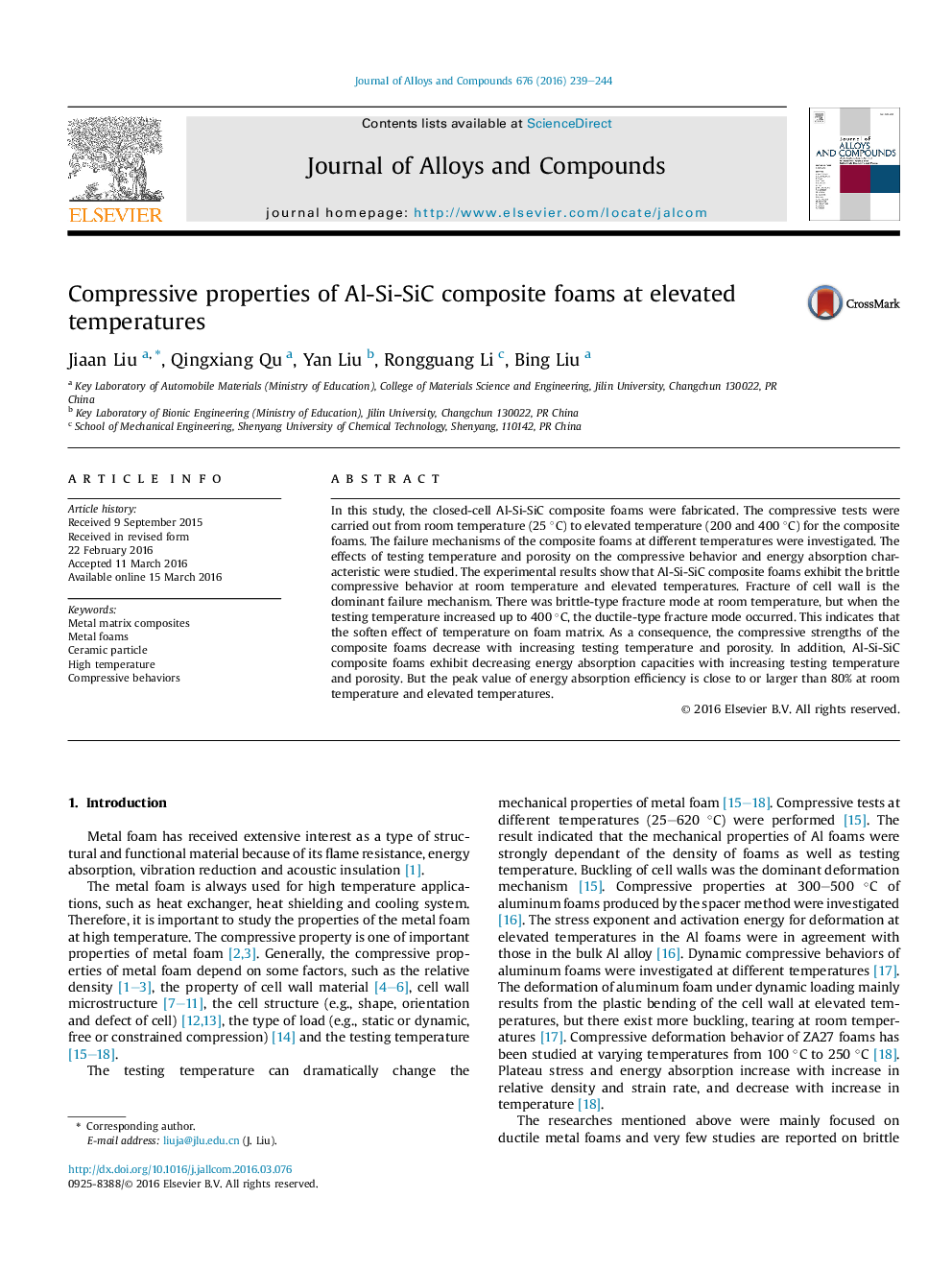| Article ID | Journal | Published Year | Pages | File Type |
|---|---|---|---|---|
| 1605801 | Journal of Alloys and Compounds | 2016 | 6 Pages |
Abstract
In this study, the closed-cell Al-Si-SiC composite foams were fabricated. The compressive tests were carried out from room temperature (25 °C) to elevated temperature (200 and 400 °C) for the composite foams. The failure mechanisms of the composite foams at different temperatures were investigated. The effects of testing temperature and porosity on the compressive behavior and energy absorption characteristic were studied. The experimental results show that Al-Si-SiC composite foams exhibit the brittle compressive behavior at room temperature and elevated temperatures. Fracture of cell wall is the dominant failure mechanism. There was brittle-type fracture mode at room temperature, but when the testing temperature increased up to 400 °C, the ductile-type fracture mode occurred. This indicates that the soften effect of temperature on foam matrix. As a consequence, the compressive strengths of the composite foams decrease with increasing testing temperature and porosity. In addition, Al-Si-SiC composite foams exhibit decreasing energy absorption capacities with increasing testing temperature and porosity. But the peak value of energy absorption efficiency is close to or larger than 80% at room temperature and elevated temperatures.
Related Topics
Physical Sciences and Engineering
Materials Science
Metals and Alloys
Authors
Jiaan Liu, Qingxiang Qu, Yan Liu, Rongguang Li, Bing Liu,
